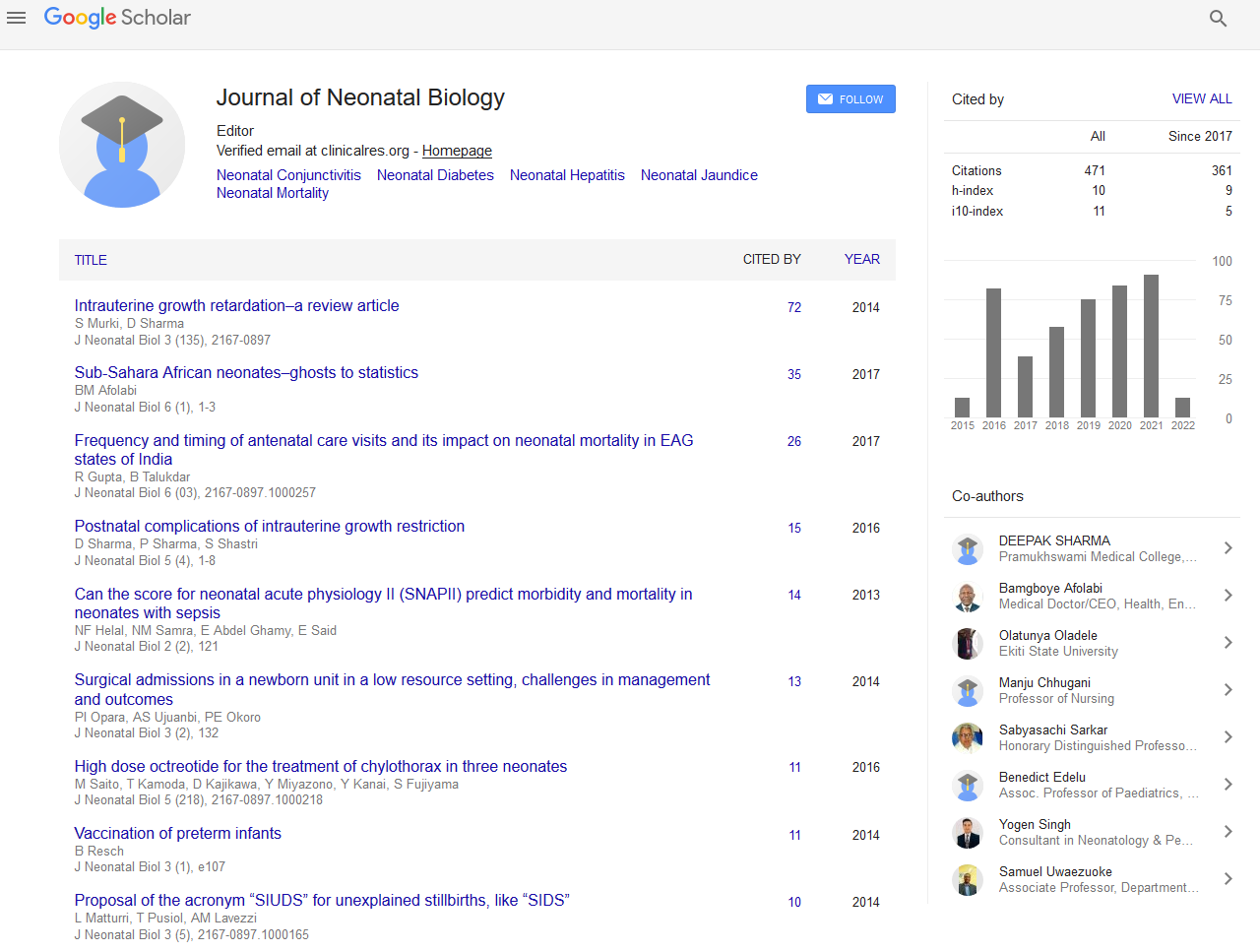PMC/PubMed Indexed Articles
Indexed In
- Genamics JournalSeek
- RefSeek
- Hamdard University
- EBSCO A-Z
- OCLC- WorldCat
- Publons
- Geneva Foundation for Medical Education and Research
- Euro Pub
- Google Scholar
Useful Links
Share This Page
Journal Flyer

Open Access Journals
- Agri and Aquaculture
- Biochemistry
- Bioinformatics & Systems Biology
- Business & Management
- Chemistry
- Clinical Sciences
- Engineering
- Food & Nutrition
- General Science
- Genetics & Molecular Biology
- Immunology & Microbiology
- Medical Sciences
- Neuroscience & Psychology
- Nursing & Health Care
- Pharmaceutical Sciences
Abstract
Neonatal Pituitary-Thyroid Axis Dysregulation with Combined Thyroid Hormone and Thyrotropin Resistance in Infant with Trisomy 21 and Maternal Subclinical Hypothyroidism
Sze May Ng, Astha Soni and Mohammed Didi
Trisomy 21 is commonly associated with thyroid problems. Although autoimmune hypothyroidism is the commonest thyroid problem in Trisomy 21, infants with this chromosomal disorder are also known to have dysregulated pituitary thyroid axis. This results in elevated thyrotropin (TSH) levels in absence of autoimmunity and structurally normal thyroid gland. The mechanism for this phenomenon is not clearly understood and it is possible that this may be due to genomic imbalance from trisomy of chromosome 21. Some authors have proposed that thyroid hormone resistance (RTH) might be a contributing factor to this. However, the genes coding for TSH receptor and the two proteins known to be implicated in TSH resistance are normal in patients with Trisomy 21. In newborns, transient hyperthyrotropinaemia is considered to be associated with maternal thyroperoxidase (TPO) antibody positivity. We describe a case of term infant with Trisomy 21, who was identified on newborn congenital hypothyroidism screening. The infant had high TSH and raised plasma free T4 (FT4) with clinical signs and symptoms of congenital hypothyroidism. We discuss the management of this case and possible mechanisms contributing to the uncommon presentation.


